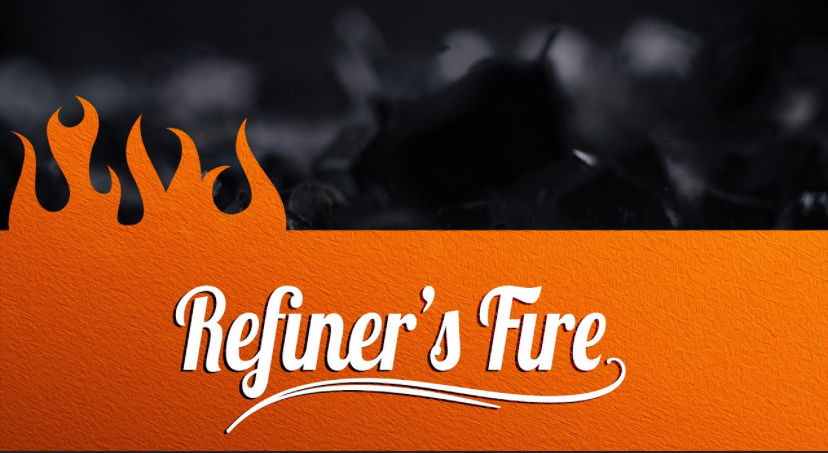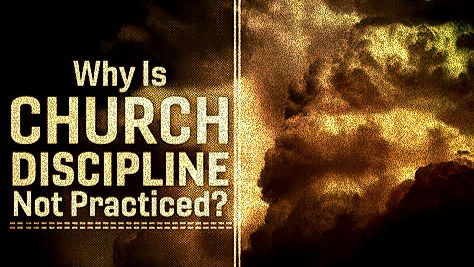
The Zeal of Phinehas: A Call to Heroic Men for Reformaion
- Clayton Bodley
- Jan 22, 2024
- 6 min read
We are not ignorant of the no less wicked then ground less cavils of some, as if we would make or have every man to be a Phinehas: And what then? Would God (if wishes, yea prayers and tears could make it) that all his Servants were as Phinehas, and that he would pour upon every one of them, the same Spirit of Holy Zeal which was in him, that by removal of the cause, his fierce anger against this poor consuming Land might cease.
But as for that Act of Phinehas, the terms following being general and ambiguous, admitting of several distinctions and subdistinctions, as it is not easy without distinguishing, in thesi to define an Action and Call Extraordinary, and an Action and Call thereunto, only Heroical; and to state the true specifical Difference and just limits between an Action and Call Extraordinary, and an Action and Call Heroical, as they are strickly taken and contradistinguished; and clearly and convincingly to demonstrate, what and how much more is required in an Extraordinary Call to an Extraordinary Action, then is required in a sufficient Call unto an Heroical Action? and whether an eminent measure of Holy Zeal, Magnanimity, and Fortitude do constitut a suffi∣cient Call unto an Heroical Action; or do only Dispose and fit the person for the right and better performance thereof, as a Call unto the Action, and the Fitness of the Person for doing of the same are contradistinguished; or may not both Dispose and fit the person for performance of the Action, and also include and give a Call unto the Action it self: So when the matter is fully considered, it will be more difficult than perhaps is apprehended, to prove that the Act of Phinehas was Extraordinary, strickly taken and in contradistinction to that which is only Heroical; or that his Call thereunto was Extraordinary, in contradistinction to that which is a sufficient Call unto an Heroical Action; and more difficult to determine, otherwise than by naked assertion, what that Extraordinary Call was? Wherein it did consist? Wherein it did differ from, Exceed or Excel a Call unto an Heroic Action?
And therefore, it will be also hard convincingly to demonstrate, that it might not have been lawfully done by another of the Children of Israel, whom the Lord had animated thereunto, by the same Holy Zeal and Resolution. And this is the more considerable, because, as we very rarely, (if at all) find the Lord commending and rewarding persons for Extraordinary Actions, whereunto they had Extraordinary Calls, so much and so highly, as here He Commendeth and Rewardeth Phinehas: So the Text itself, Numb. 25., doth lay the great, if not the only weight and ground of his Commendation and Reward, upon his ZEAL, and not upon any Extraordinary Call, whereof there is not the least hint or insinuation; For vers 11. the Lord saith, “He turned my wrath away from the Children of Israel, while he wasZEALOUS for my sake among them”; and therefore vers 12, 13. promiseth him, “His Covenant of peace. a seed after him, and the Covenant of an Everlasting Priesthood”, BECAUS, “he was ZEALOUS for his God.”
And if any shall, as it is like some will allege, that Heroical Actions, are not more imitable than these which are Extraordinary; It is humbly offered to be considered, anent Heroical Actions in general, Whether, when the matter of an Action is not only Ordinary, that is, neither Preternatural nor Supernatural, though not very Frequent; but also Just and Lawful, yea, and Necessary, both by Divine Precept, & as a Mean to a good and Necessary End; and when either, there is not, or doth not appear any other to do the work, whether, I say, in that case, a Spirit of Holy Zeal, Magnanimity, and Courage, wrought and excited by the Lord in his Servants and People, more or fewer, being otherwise in a Rational and probable Capacity, be not for that time a sufficient Call, unto the performance of these Actions which are commonly called Heroical; and especially when and where, the Action is not unnecessarily, irrationally, nor in vanity attempted, but may be and is performed, not only without prejudice of the True, Necessary, and Chief Good of the Church and Common-wealth, or of any particular person's just Right and security; but also in the case of the Magistrate, and others, their willful and perverse neglecting of their duty, is necessarily undertaken, and is not only formally intended by the Actor, but also natively and really doth conduce to the Glory of God, the Good of Religion, the preservation and establishment of Church and Commonwealth, and of every particular person's Just Rights and Security, by suppressing of Impiety, promoving of Truth and Holiness, doing of Justice, Turning away of wrath and removing of present and preventing of future Judgments.
And as for the particular instance of Phinehas, if the Lord did not only raise him up to that particular Act of Justice, but also warrant and accept him therein, and reward him therefore, upon the accompt of his Zeal, when there was a Godly and Zealous Magistrate, able, & whom we cannot without breach of charity presume, but also willing to Execute Justice; How much more may it be pleaded, that the Lord, who is the same, yesterday, to day and for ever, will, not only pour out of that same Spirit upon others, but also when he gives it, both Allow them though they be but private persons, and also Call them being otherwise in a Physical and probable Capacity, to do these things in an Extremely necessitous, and otherwise irrecoverable State of the Church, to which in a more entire condition thereof, he doth not Call them; and particularly when there is not only the like or worse provocations, the like Necessity of the Execution of justice and of Reformation, for the turning away of Wrath and Removal of Judgments, that was in Phinehas case; but also when the Supreme Civil Magistrat, the Primores Regniand other inferior Rulers, are not only unwilling to do their duty, but so far corrupted and perverted, that they are become the Authors and patronizers of these abominations. Which is also the more considerable, because, if upon the fear or suspicion of the Accidental hazard of Private mens usurping of the Office, or doing of the duty of Public persons, every virtue and virtuous Action, which may be so abused, shall be utterly neglected, Impiety shall quickly gain an Universal Empire, to the extermination of all Goodness.
It is true, that the God of Order hath assigned to every man his Station and Calling, within the bounds whereof he should keep, without transgressing by Defect or Excess; and therein wait and act, in such a measure of the Spirit as He is pleased to comunicate: And we do not hold such instances for Regular & ordinary precedents for all times and persons universally; which while some have fancied, and heeding more the glory and fame of the Action, then the sound and solid Rule of the Holy Scriptures, they have been tempted and carried to fearful Extravagancies: Neither are insolent or disorderly much less Wicked attempts, which sometimes have covered and yet may mask themselves with a pretence of Zeal, upon this or any other ground to be licenced or approved; But on the other hand, as these instances hold forth, for the conviction and reproof of our stupidity and indifferency, what an high pitch of Holy Zeal and Courage, the Servants of the Lord have sometimes attained, and do further demonstrate, that He doth sometimes warrant even Private persons, in their doing of these things in an Extream Necessity and collapsed state of the Church, to which at other times He doth not call them.
So when the Lord, with whom is the residue of the Spirit, doth breath upon his people more or fewer, to the exciting of more then Ordinary Zeal, Courage and Resolution, for the Reforming of an Apostate Church, for the Execution of justice upon the Adversaries, and for the advancing and establishing of Truth and Holiness in the Earth, we should rather ascribe glory and praise to Him, whose hand is not shortened, but many times chooseth the Weak and Foolish things of the World to confound the Mighty and the Wise, then condemn His Instruments for Rebels and Usurpers, as it is like Phinehas would have been, had he lived in this generation, if the same Lord, who by his Spirit had Acted him, had not also by his own hand rescued him.
Sir James Stewart, James Stirling, Naphtali, or, The Wrestlings of the Church of Scotland for the kingdom of Christ Contained in a True and Short Deduction thereof, From the Beginning of the Reformation of Religion, until the year 1667: Together with the Last Speeches and Testimonies of Some who have Died for the Truth since the Year 1660: Whereunto are also Subjoyned, A Relation of the Sufferings and Death of Mr. Hew McKail ..., Pg. 21-25.




Comments